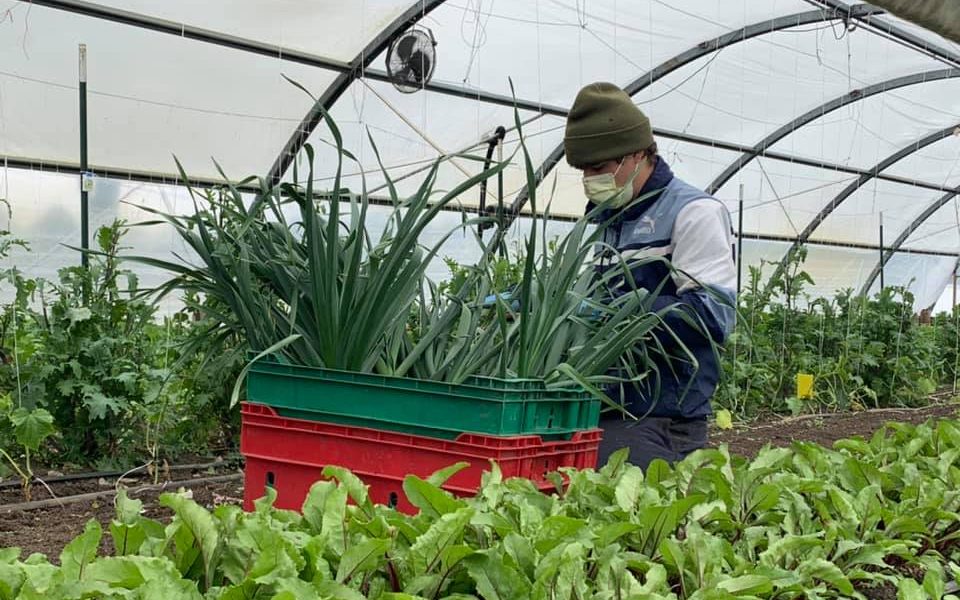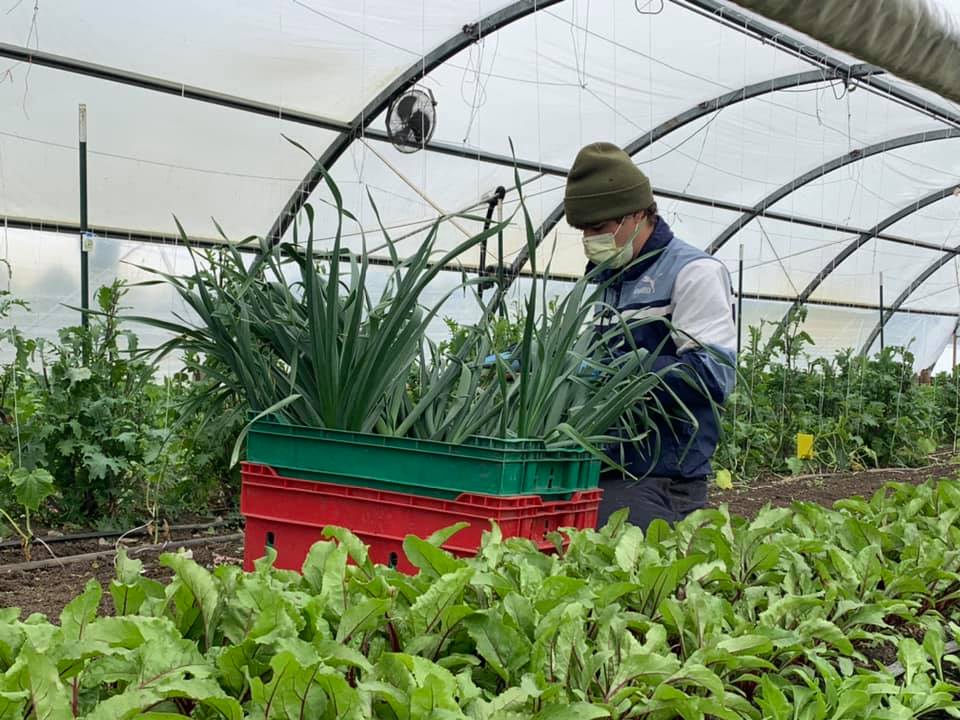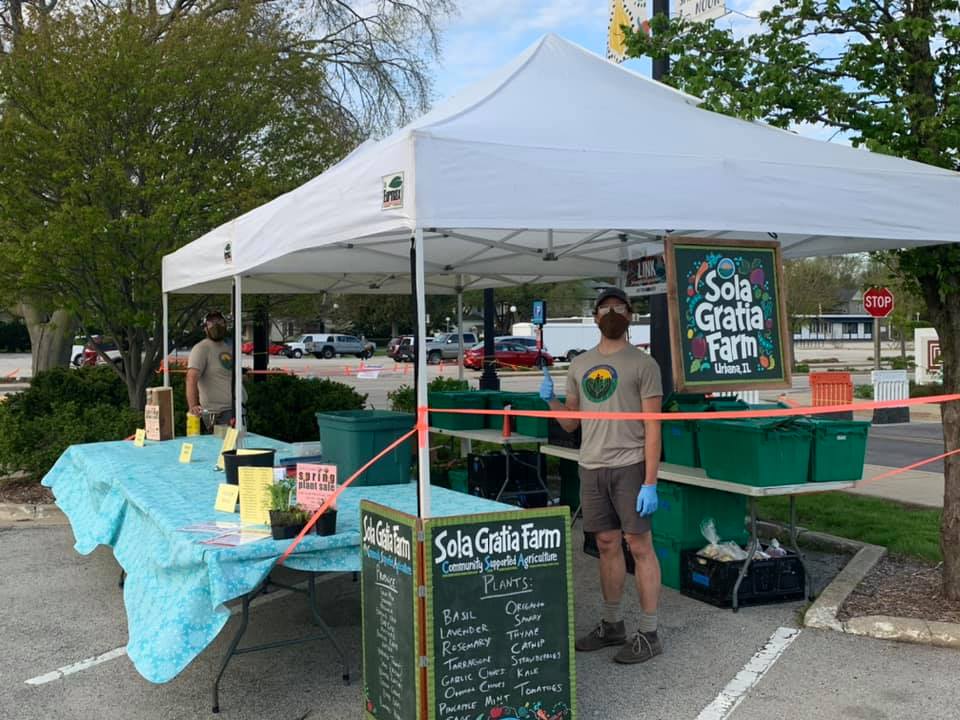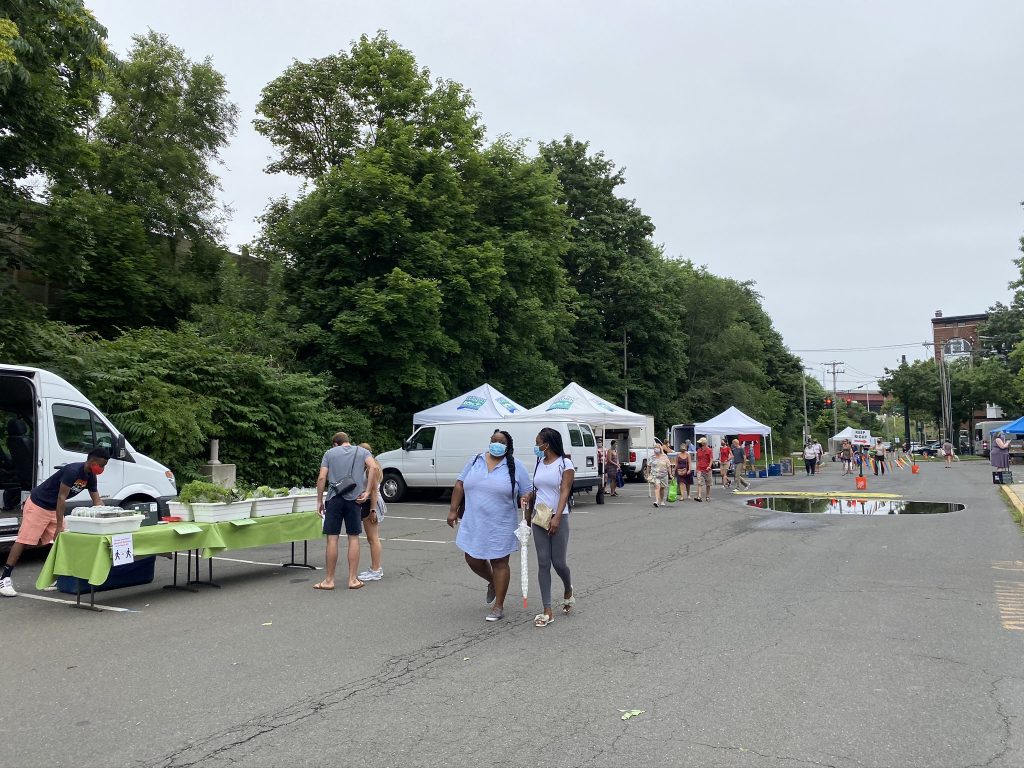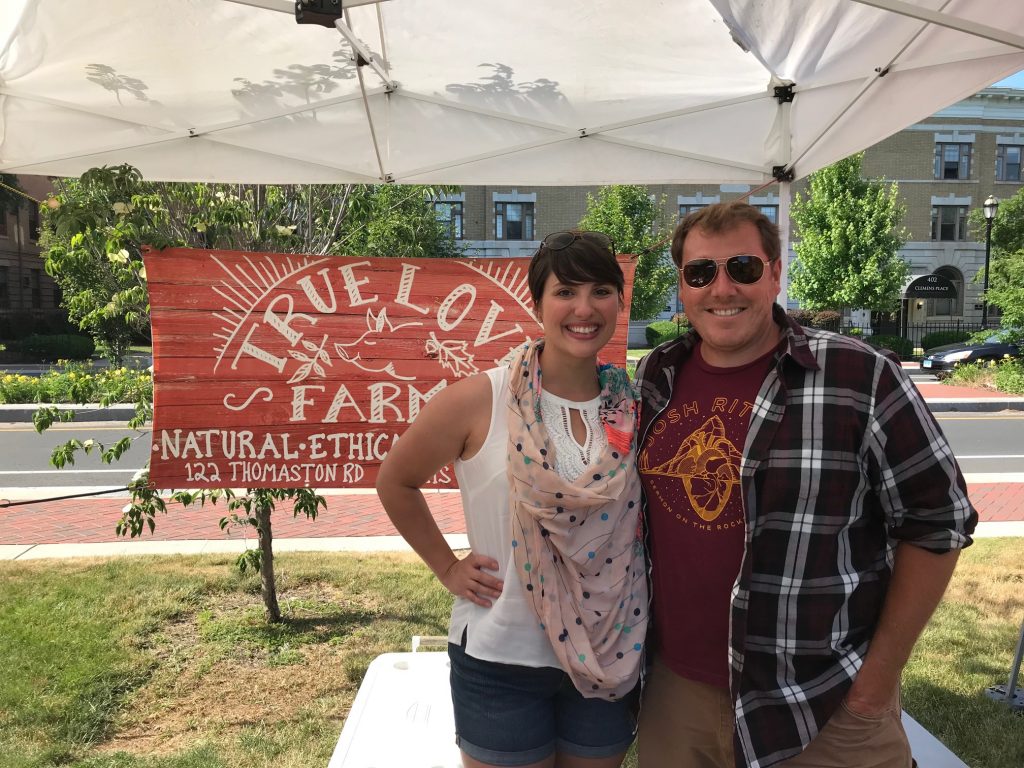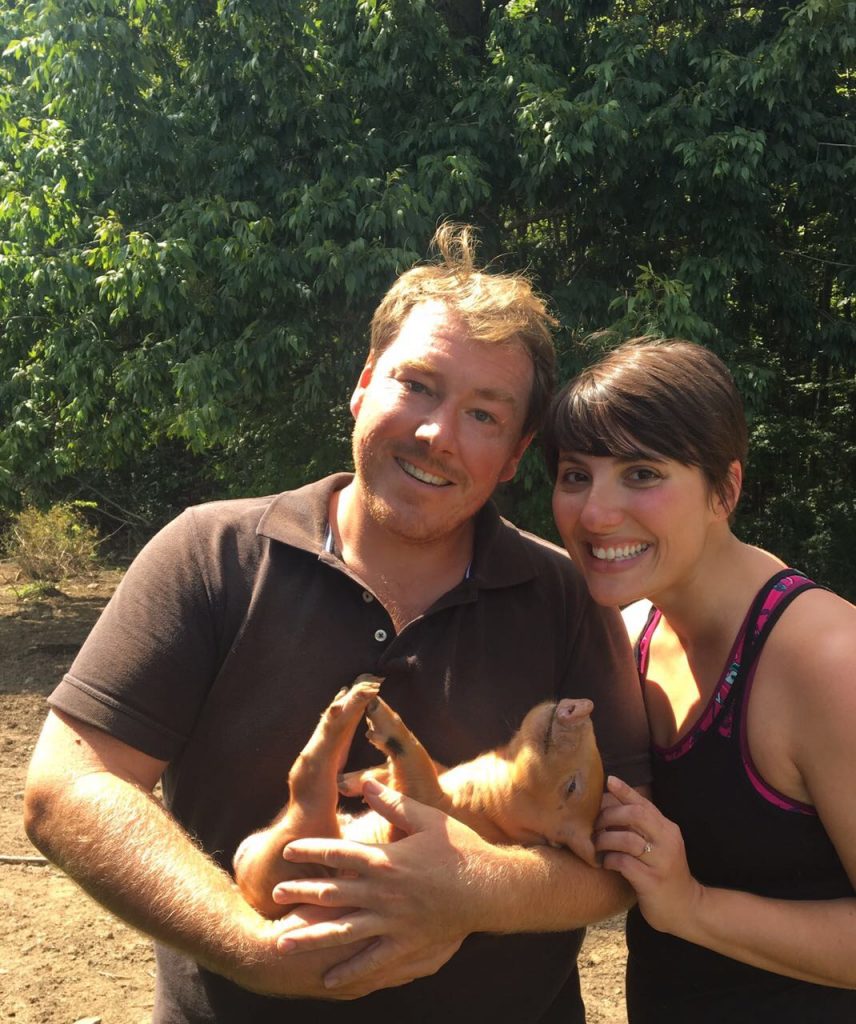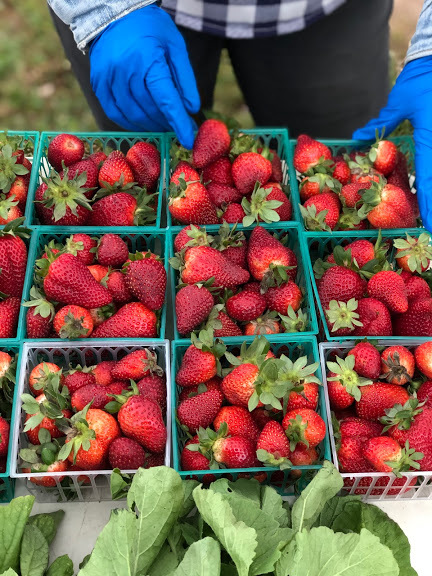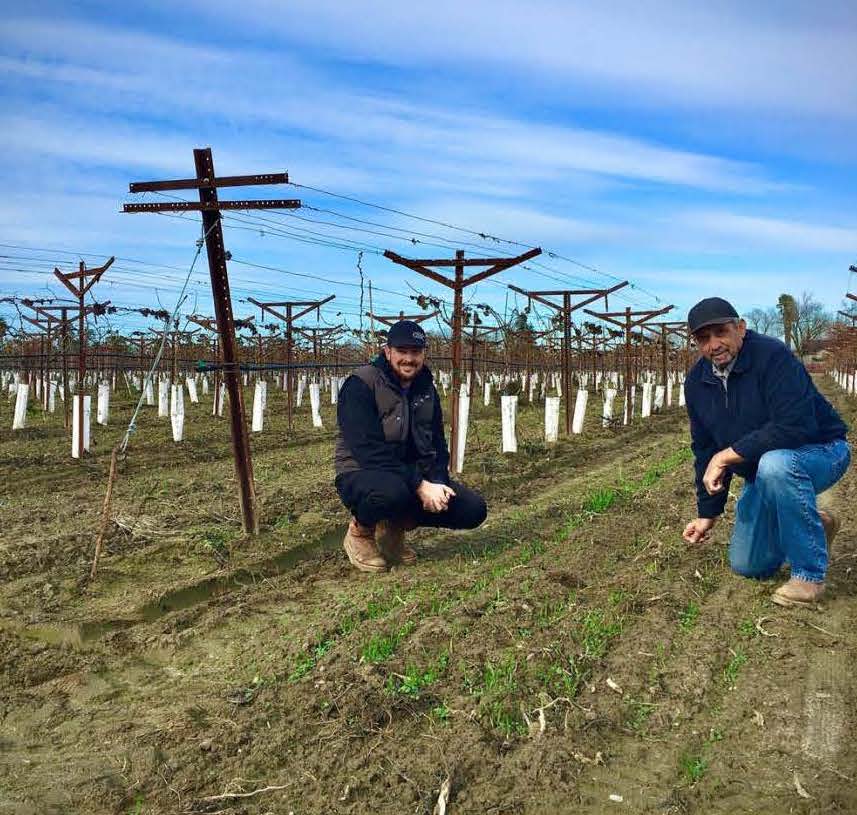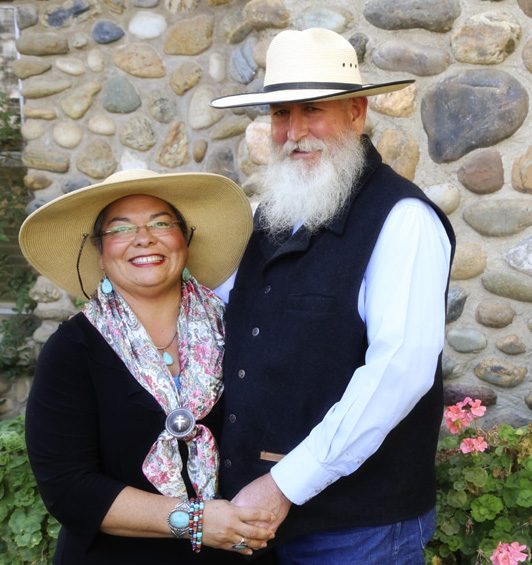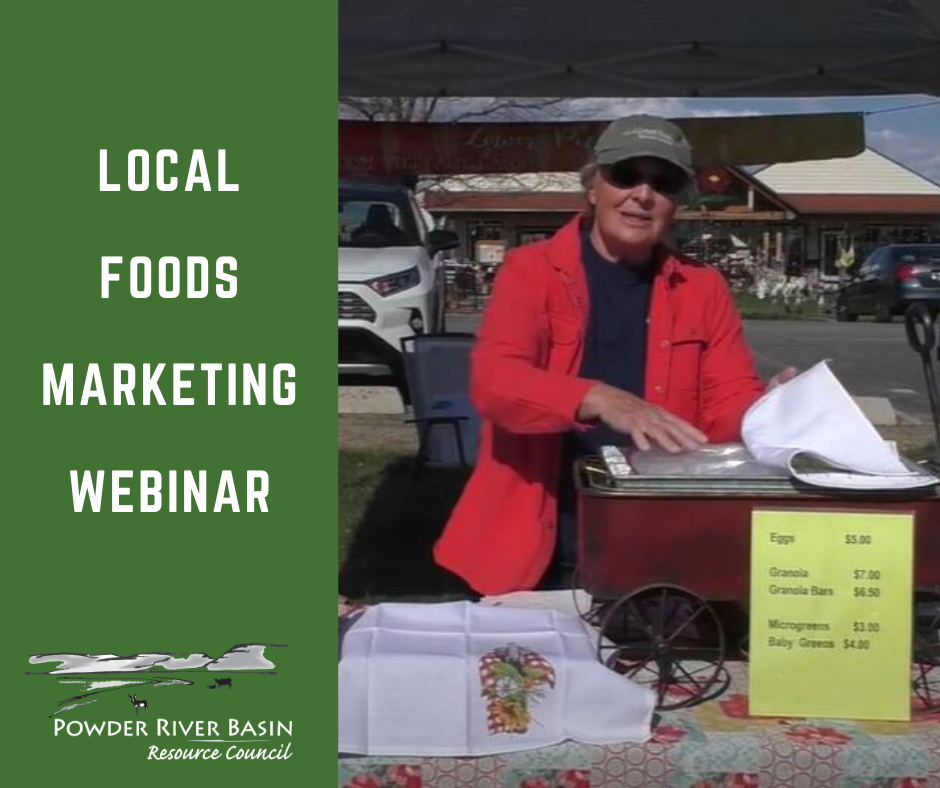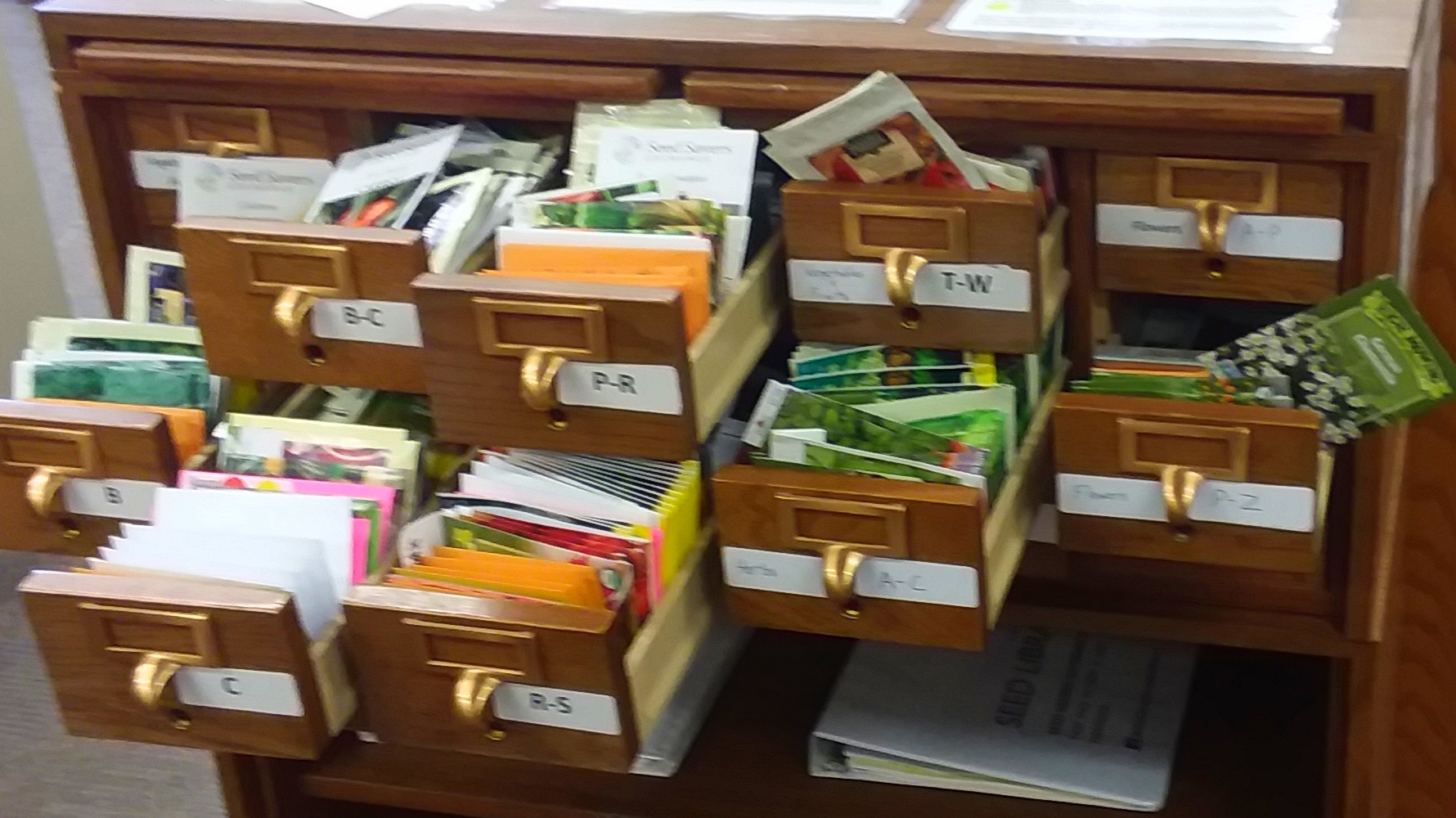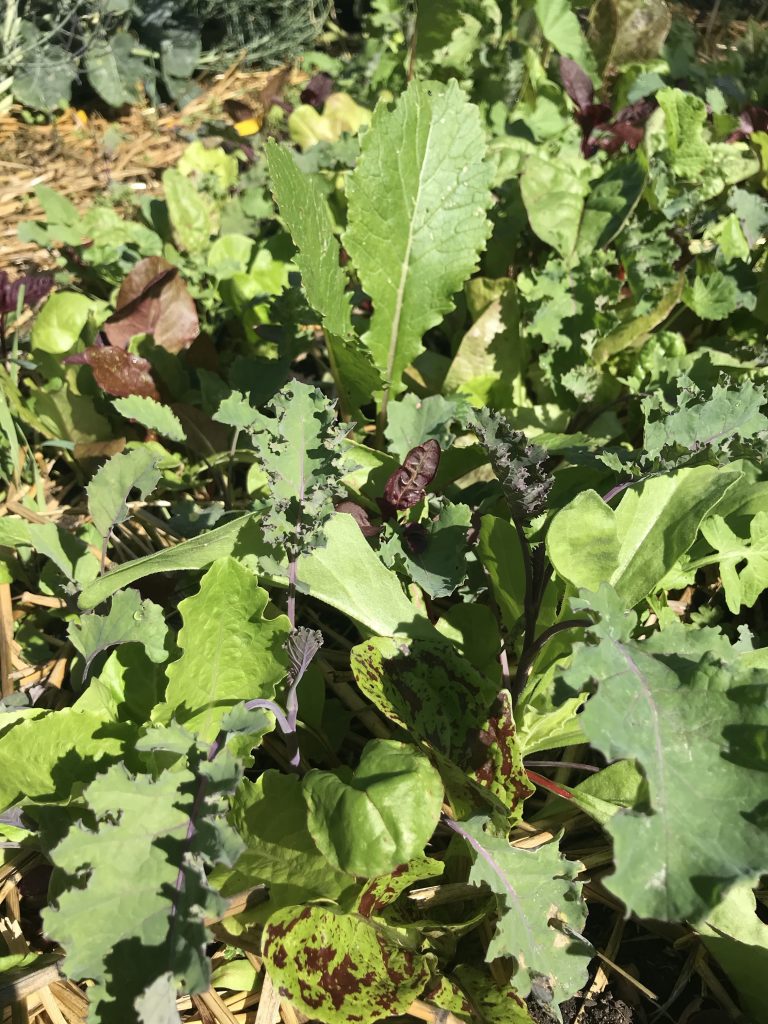Farm Aid partners with organizations all over the country to work towards our mission of creating a family farm-centered system of agriculture in America. Since our first concert in 1985, we’ve granted over $25 million to more than 300 organizations, creating a strong network of allies to keep family farmers on the land. Each year, grantees report back on what they’ve accomplished.
In May and June, many of our partner organizations wrote to us about the impact that COVID-19 was having on them and the farmers they work with. Their stories run the gamut, from creating market safety protocols to helping farmers start online stores; all our partners showed quick thinking and collaboration to support their communities. We’re proud to share their stories in their own words here, lightly edited for clarity. (Due to the rapidly changing nature of the pandemic, these stories may have evolved since we collected them. For more up to date information, check in with organization on their website.)
Choose a state from the list below and read a story or two about our local partners.
Illinois
Illinois Stewardship Alliance
After five years of organizing, coalition building, and advocacy, legislators included a $500,000 appropriation for the Healthy Local Food Incentives Fund (HLFIF). The fund will provide farmers markets that accept SNAP with funds to match produce purchases. With the HLFIF finally fully funded, Illinois can apply for a match from the federal government, investing up to $1 million directly in families who need fresh food and farmers who grow it. The budget heads to Governor JB Prtizker in June.
In the wake of the COVID-19 pandemic, support for family farms and vulnerable communities is more important than ever. Illinois is experiencing spiking unemployment and food pantries are seeing unprecedented need. At the same time, Illinois has over 1000 farms selling their products through local markets and looking to reach new customers. Many of these farms depend on sales at farmers markets, which are predicted to experience a severe decline in attendance and sales this year. The HLFIF will connect Illinois families seeking fresh food to farmers market vendors at a time when these connections are most needed.
For low-income shoppers, the HLFIF means greater food access. SNAP match programs, like the ones that will be funded through the Healthy Local Food Incentives Fund, work by doubling the purchasing power of low income shoppers. SNAP shoppers who spend $25 at their farmers market are matched with an additional $25 to spend on fruits and vegetables, doubling their total shopping budget to $50. For farmers, like Traci Barkley, the HLFIF means greater economic opportunity.
Traci grows lettuce, carrots, tomatoes, and more on her farm Sola Gratia, situated behind St. Matthews Church in Champaign. She sell produce at the Champaign Farmers Market, where 31% of the farm’s sales come from SNAP (Supplemental Nutrition Assistance Program) recipients. Traci’s farm works hard to meet the needs of her community, while remaining in business, and SNAP match programs like the one at the Champaign Farmers Market help her do it.
The Champaign Farmers Market is one of nearly 90 markets in the state that offer a SNAP match program, supported through LINK UP Illinois – a federally funded grant program administered by the non-profit Experimental Station. This program has been so successful, SNAP recipients using the program report a 78% increase in their fresh fruit and veggie intake. And farmers like Traci report significant sales increases at markets that offer the program. But that program can’t reach all of Illinois’ 300+ farmers markets – meaning many shoppers and farmers, especially in rural communities, aren’t being served.
Enter the Healthy Local Food Incentives Fund, which will enable farmers markets across the state to offer SNAP match programs. Double SNAP dollars will do double good; helping the most vulnerable in society purchase fresh food and providing needed economic support for local farms – like Traci’s. When SNAP recipients shop at farmers markets, their federal SNAP dollars go into the pockets of family farmers and small businesses in Illinois instead of big box stores headquartered out of state.
The Alliance is proud that Illinois’ legislators stepped up to support our SNAP recipients and their access to nutritious, locally sourced produce. After years, the Healthy Local Food Incentive Fund has finally been realized; doubling SNAP dollars, providing more food security, and providing economic stimulus for our farmers.
The Land Connection
In mid-March as Illinois began shutting down, our local agriculture advocates sprang into action. At The Land Connection, in addition to joining with our partners and farmers to develop systems to address the cascading disruptions caused by COVID 19 to our food system, we launched a survey to assess the needs of the producers in our central Illinois community.
To read more about the survey and the effect of the pandemic on local food, check out our blog post.
Connecticut
CitySeed
Since 2004, CitySeed has been operating vibrant farmers’ markets throughout New Haven that serve nearly 55,000 visitors each year and support the livelihoods of 60 local farmers and food entrepreneurs. During the COVID-19 pandemic, farmers’ markets have been deemed an “essential service” by executive order in Connecticut. Across the country, outdoor farmers’ markets matter now more than ever and CitySeed has proactively implemented safety guidelines to protect the health of our market vendors, staff and the public.
In response to COVID, CitySeed has removed its cap on doubling SNAP dollars at our markets (previously capped at $10 in purchases/$20 total value) and now offers unlimited double SNAP/EBT benefits (or a 50% discount) on all fruits and vegetables. While most market customers do drive-through, customers are also welcome to walk and bike through, and are intentional about our market locations that they are near public transportation. Based on public health recommendations and City guidance, we limit the number of customers during each 10 minute window, and customers sign up for a time slot in advance through our website to manage flow.
One of those vendors is Truelove Farms, a sustainable farm in Morris, Connecticut focused on using natural, grass-based practices to ethically raise pork, beef, eggs, and poultry. “This is a challenge but it is not insurmountable,” says owner Tom Truelove. “It feels good to be needed in a time of crisis. We’re happy to do our part and make sure everyone gets fed.”
Truelove Farms has been navigating multiple challenges brought on by COVID: streamlining technology and ordering systems, instituting safety measures at farmers markets, and also navigating the downstream effects of the national meat industry crisis. Tom highlighted the infrastructure and supply chain issues that have trickled down from large-scale meatpacking plants to local operations like his. As COVID outbreaks have impacted the biggest meat processors in the country, certified slaughterhouses and butcher shops that typically serve small and mid-sized livestock operations have been slammed.
For farms like Truelove, that has meant waiting weeks to get an appointment, which can potentially lead to running low on inventory at the exact moment consumers are stocking up their freezers. “It exposes a lot of reasons we got into this in the first place,” says Tom. “Our national food system is incredibly fragile and really problematic. COVID has tipped it on its head, particularly the meat sector. There’s a bitter irony in that.”
The current COVID-19 pandemic presents unprecedented and urgent challenges to our local food system. Despite these uncertainties, CitySeed believes that this is a unique opportunity to transform, evolve, and meet the needs of our community in new ways both in the midst of this pandemic and after it has passed.
Texas
Sustainable Food Center
Sustainable Food Center has been running farmers’ markets in the Austin area for over 18 years. We cultivate spaces where the public can support small farmers and ranchers, bolstering the local economy, and providing assistance programs to food insecure communities. Now, with COVID-19 threatening access to grocery stores, the agricultural food supply chain at risk, and local economies devastated by businesses closures, our farmers’ markets continue to fill the critical gap between agricultural producers and consumers.
When word came that farmers’ markets in Austin might have to close at the onset of the pandemic in March, the Farmers’ Market Team at Sustainable Food Center launched into action. Market Managers Ben Hasan and Amy Gallo advocated to Travis County Judge Sarah Eckhart, outlining SFC’s plan to run a safe, public health compliant farmers market and gain “essential business” status that would allow us to operate through the pandemic. Successful in those efforts, by March 15th both the Downtown and Sunset Valley locations were in full operations with newly implemented safety procedures. The new procedures we developed were quickly adopted by other farmers’ markets in the area.
The farmers’ market team researched and quickly adapted the physical aspects of our markets to keep in line with public health standards. Market adjustments include single-entry/single-exit layouts, hourly spot cleaning, mask wearing requirements, hand sanitizing stations, coupled with staff members tracking attendance and closely monitoring reduced capacity limitations to ensure social distancing.
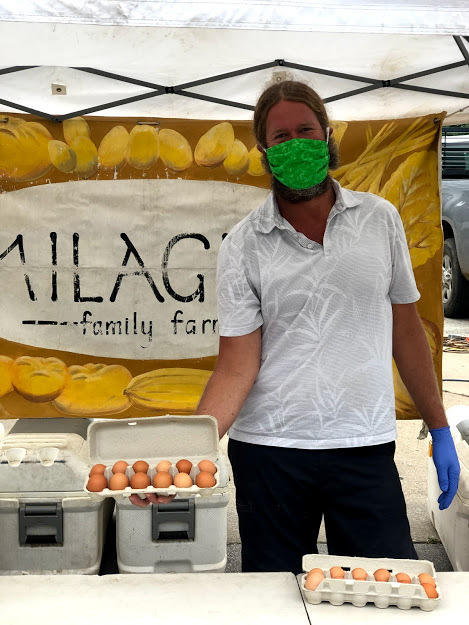
Farmers’ Market vendor Milagro Family Farm staying safe during COVID with added safety precautions and personal protective equipment. Photo: Jane Carletta
In addition to Johnson’s Backyard Garden, SFC Farmers’ Markets support 50 other farmers, ranchers and agricultural producers who sell through our outlets. We are enrolling farmers in our Neighborhood Pop-Up Grocery project, making connections to wholesale buyers, assisting farmers with grant applications, and making sure farmers’ markets stay open and safe. SFC is committed to continuing to help local farmers and ranchers navigate this continually evolving situation and achieve long term success and viability.
Wisconsin
Midwest Organic & Sustainable Education Service
Farm-to-table restaurant steps up as community food hub in pandemic
By Lisa Kivirist
When life gives you lemons, make lemonade. But what about when life gives you a COVID-19 pandemic that forces you to close your business doors? Take advice from Marie and Matt Raboin of Brix Cider and pivot, in their case reinventing their cidery and cafe into a regional food hub and community food delivery service. “We celebrated our first anniversary of Brix on January 31, 2020, and we were one of the first restaurants in Dane County to close due to COVID on March 14, before the Governor’s stay-at-home orders,” said Marie Raboin, who operates the cidery and local food café just west of Madison in Mount Horeb. Up until then, she and her husband, Matt, had successfully navigated that unpredictable first year in business, building a strong reputation of commitment to community, quality ciders, and local food.
To read more about Marie and Matt, as well as the farms they work with, check out the full article here.
Vermont
The Carrot Project
Ray Shatney and Janet Steward have been raising prizewinning Highland cattle on their family farm, Greenfield Highland Beef, in Greensboro Bend and Plainfield, Vermont, since 1967. In 2010, they took out a loan for a tractor backed by The Carrot Project — equipment that was the right size for their property and its terrain, which is still used on the farm today. In May, Janet joined us for a virtual panel to share how COVID19 has affected small farm businesses. The virus “has changed most everything that we do,” she told us.
To hear more about Ray and Janet, check out our blog post.
California
California Climate & Agriculture Network (CalCAN)
In early March, it became clear that the spread of the coronavirus was disrupting normal legislative business in Sacramento. CalCAN cancelled our March 18th Legislator Education Day despite the willingness of our 30 farmer, rancher and other partners to participate in a virtual version. This proved the right decision as two days later the California legislature went into an unprecedented recess, which was recently extended until May 4th. We have since re-oriented our work to adapt to the pandemic’s impact on the California budget and legislative process.
Continued progress and financial investments in California’s ambitious, science-based climate goals and suite of “climate smart agriculture” grant programs will provide an engine for economic development to rebuild rural economies hit hard by the pandemic. The Healthy Soils Program, one of these programs, had a record year of funding available ($22 million) and received a record number of applications, 578 requesting over $37 million. This great success is largely a product of the efficient and effective outreach of many advocates, including CalCAN and our coalition members, and 40+ technical assistance providers throughout the state. Overwhelming interest in the program demonstrates the vital importance of climate smart farming for farmers and ranchers and numerous benefits provided for all Californians, even while the global pandemic causes widespread disruptions.
California farmers, ranchers and farmworkers will confront – and be on the frontlines of – any number of climate change-related challenges, including water scarcity, wildfires and extreme heat, while they continue to address new challenges of COVID-19. We are reflecting on how farmers are responding to the COVID-19 crisis, and what lessons we can learn about enhancing food system resilience to climate change impacts. Steven Cardoza of Cardoza Ranches, an organic raisin grower near Fresno, CA, is taking over the family farm from his father and grappling with the impacts of both the pandemic and climate crisis. He says, “our main challenge right now is getting enough masks and suits to protect our workers. That’s what keeps me up at night. I’m also worried about harvest in August when we need 200 workers to pick grapes in 10 days—social distancing will be impossible. It’s always been hard to make long-term decisions in farming, especially with the uncertainty of climate change. And now it’s challenging to make even short-term decisions about what to plant this year.”
The dairy industry has been acutely affected by the pandemic as contracts for milk have decreased and the price for beef has declined. Rosie Marie Burroughs of Burroughs Family Farms, an organic dairy and almond grower in Merced County, CA, says “the milk industry was already being hit hard by an oversupply that drove down prices. The pandemic has made it all the more real about our reliance on local farmers and it makes the case for curbing climate change to protect their livelihoods. It’s also clearer how important it is to maintain and shore up local economies and food systems.”
Florida
Farmworker Association of Florida
As we all know, the arrival of the Coronavirus in our nation and around the world has resulted in many businesses being shut-down and the associated financial and economic impact. Directly affecting farms and plant nurseries in Florida has been the closure of restaurants, hotels, amusement parks and related businesses. Without restaurant business, farms are unable to find sufficient markets for their crops. Similarly, with the closure of hotels and amusement parks as well as the cancellation of weddings and other occasions with a demand for flowers, ornamental plant nurseries have also seen a drastic reduction in business. These closures or reductions in business have had a direct impact on farm and nursery workers with reduced hours, lay-offs or job loss.
To read the full story, check out our blog post about the impact the pandemic is having on farmworkers
Iowa
Organic Farmers Association
A result of a meeting Iowa organic farmer Kate Mendenhall had during our Farmer Fly‐in with Senator Grassley, an invitation was made to connect Senator Grassley’s agriculture aide with Iowa organic farmers to learn more about their experience with falling organic grain prices as a result of fraud.
Two organic grain farmers and members of Organic Farmers Association, Matt Miller from Bristow, Iowa and Paul Mugge from Sutherland, Iowa, took time out of their busy planting schedules to speak with Grassley’s Aide about their operations, market trends over the past five years, and concerns with COVID‐19. The farmers asked Grassley’s Aide if he could help inquire about the Strengthening Organic Enforcement Rule at the Office of Management and Budget (OMB), which has been stalled from moving forward. It was a productive conversation that ended with a commitment from Grassley’s office to follow up and support U.S. family farmers in receiving a fair price and competing in a fair market.
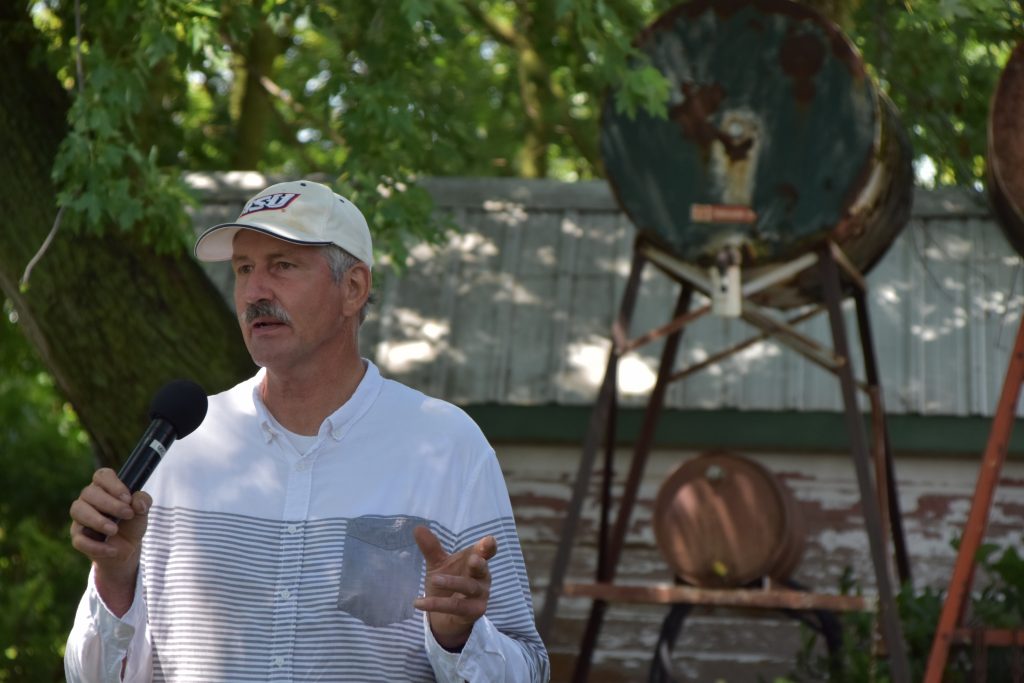
Paul Mugge shares innovations from his organic farm in Sutherland, Iowa with other organic and sustainable farmers during a field day on his farm in 2019.
In the wake of this productive conversation, Senator Grassley’s office has also provided a letter of support for an Iowa organic farmer, Maria Rosmann, applying for a farmer seat on the National Organic Standards Board (NOSB). These farmer stories demonstrate the importance of bringing organic farmers to Washington, D.C. Their voices have a powerful impact and can allow OFA to expand congressional offices’ contact with various organic farmers from their district to increase relationships with organic family farmers, making sure that the farmers’ policy priorities are being heard and addressed at the national level.
Wyoming
Powder River Basin Resource Council
When COVID first hit Wyoming, we worked closely with our Local Foods Committee, the farmers’ market venue, and a wider group of market vendors to find ways for the market to implement social distancing so that they could safely remain open and provide food access for people. At the same time, we were working with this same group of stakeholders to get an online market running so that people who did not feel safe going to the market could still access local food. We helped with outreach and logistics including delivery methods, etc. The market quickly took off and has added a number of additional vendors. Additionally, we helped both producers and consumers to better understand and utilize existing and new farm-to-consumer opportunities. As this year progresses, we are working with our members and allies on legislation to expand those direct sale opportunities in the Wyoming Food Freedom Act.
Prior to COVID, we had been preparing for a Local Foods Marketing Workshop in March. In order to preserve public health and safety, we pivoted to creating a digital workshop instead that covered all of the topics we had planned: social media, email marketing, websites, and setting up a farmers’ market display.
Another COVID-related measure we took was in response to the Sheridan Public Library closing to the public. The Sheridan Seed Library is housed there, and COVID hit at the beginning of planting season, so people were cut off from this free-seed resource. One staff member removed the seeds from the library and brought them to our office where we safely bundled them into grab bags and stored them in a weather-proof tote on our porch. We did a lot of outreach to let people know the free seeds were still available to the public, and that the seed packets were safely packaged for pickup.
Another significant impact of COVID on our local foods work has been the cancelation of our Annual Harvest Celebration. We had planned it for late August, but in order to protect the health of our members and the public, we are not holding the in-person event this year. While the Harvest Celebration is an important fundraising event for us every year, our Board of Directors felt it was the right and responsible thing to do.
Lastly, COVID has shown how fragile our food supply chains are and has exposed the meat packing industry’s rampant price-gouging. Our independent ranchers have seen their markets collapse, compounded by a lack of local/regional processing capacity. We have been working with our local producers as well as with WORC and the regional groups on what type of economic impact relief is available for livestock producers as well as long-term fixes for the system. We know this will take time to address, but what COVID has clearly shown is that our livestock markets are entirely broken.
North Carolina
Operation Spring Plant
We have traveled to build six 2020 farmers markets, and purchased seed that helps to support these farmers. Because of the pandemic our outreach specialist is sourcing products from small farmers black and white to fill the demand from the six markets. We have applied for assistance through Resourceful Communities to supply masks and gloves for the community markets and are waiting for a decision. Operation Spring Plant (OSP) also purchased signage for the markets and used a portion of the funds to cover a prorated amount for administrative costs.
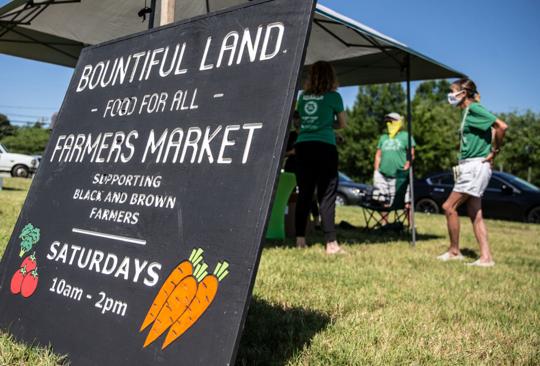
The Bountiful Land Food for All Farmers Market in Greensboro, N.C., on Saturday, July 11, 2020. Photo: Khadejeh Nikouyeh/News & Record
The weather in eastern North Caroline, where the bulk of the produce comes from, produced excess water in fields that made it hard to get in, to plant and harvest. Water caused cabbage to split open and made them undesirable and unsafe. However, for the most part the weather has cooperated.
Operation Spring Plant is working with a new and beginning organic farmer and beekeeper. OSP purchased bees from him and is providing him with organic nutrient (fish waste water) for his organic vegetable production.
Olasanya Farm, which is the demonstration site for OSP, has been contacted by ARMARK to indicate that they are ready to buy from Olasanya when we receive our food safety certification. We are working with Carolina Farm Stewardship to get a 2020 Harmonized Gap Standard Certification. This is all a result of the REAL MEALS CAMPAIGN we participated in 2019 to compel ARMARK to source from small and medium scale farmers, invest in racial justice and infrastructure for Black farmers, lower their carbon emissions, and build transparency and accountability.
We are gearing up for fall production to continue to supply the COVID-19 crisis markets.
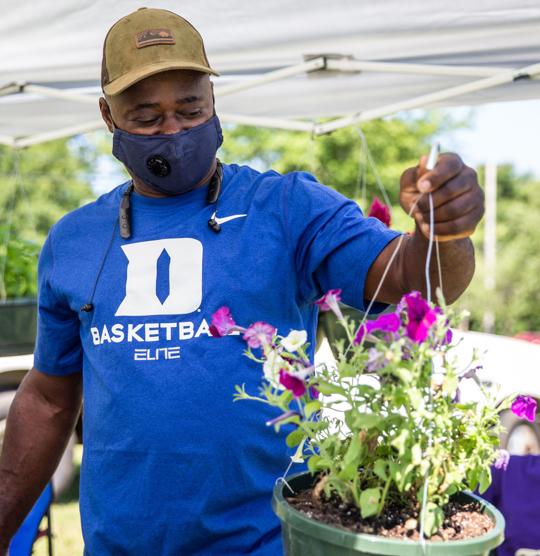
Phillip Barker picks up a hanging plant for a customer at the Bountiful Land Food for All Farmers Market in Greensboro, N.C., on Saturday, July 11, 2020. Photo: Khadejeh Nikouyeh/News & Record
One final note, we are very proud to announce that our very own Dorathy & Phillip Barker, the founders of OSP, are 2020 Leadership Award recipients of the prestigious James Beard Foundation. We are very proud of the work that they have done and continue to do to serve their community of citizens and farmers.
Washington
Organic Seed Alliance
The coronavirus has changed so much in our world, but it has not stopped OSA’s work to meet the seed needs of growers. In response to the pandemic, OSA has expanded outreach efforts to farmers in need and donated seed and produce from our research projects to classrooms and communities. Since the pandemic began, we have delivered:
- Over 400 pounds of lettuce, spinach, zucchini, and tomatoes to the Jefferson County Food Bank, Nadine’s Soul Food Kitchen, and the Jefferson Healthcare hospital near our research farm in Chimacum, WA.
- 1,000 ears of sweet corn and the first contribution toward 1,000 pounds of a tomato donation to the Food for the People Food Bank in Eureka, CA from our research plots in Northern California.
- Seven pounds of vegetable and flower seed mailed or delivered to elementary classrooms, lunch delivery programs, farm education programs, and the WA state Immigrant Relief Fund.
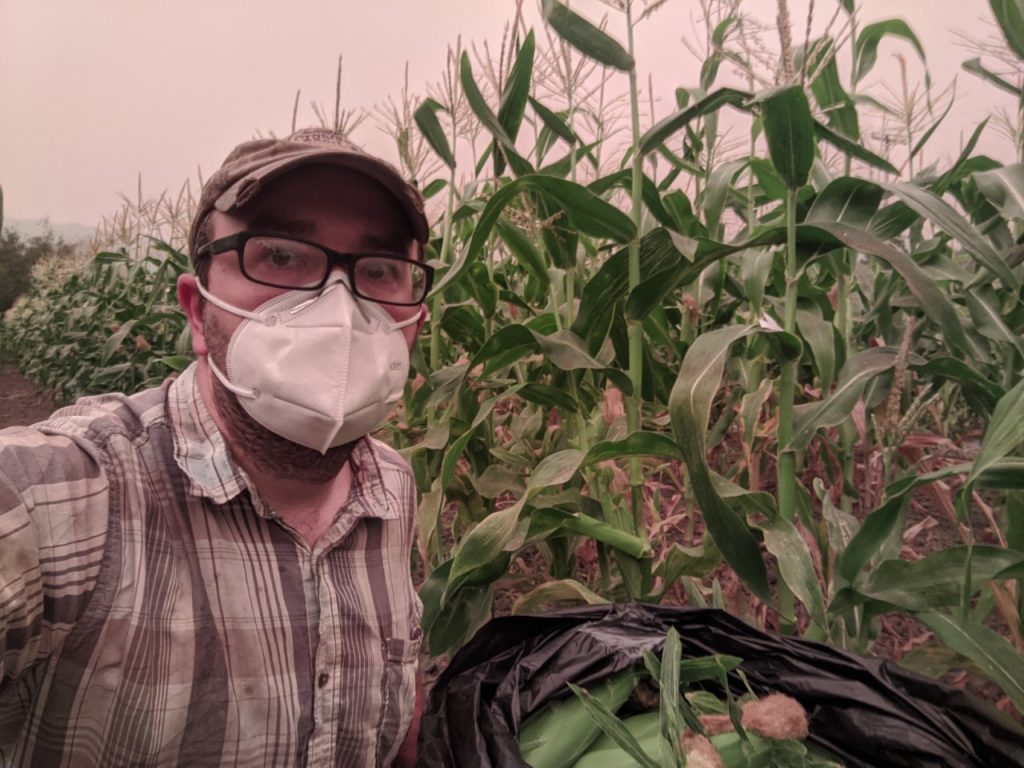
OSA’s Jared Zystro harvests sweet corn for the Food for the People Food Bank in Eureka, CA. Photo: Organic Seed Alliance.
Spotlight on support: Milpa Seed Blanket project
As the pandemic set in, demand for seed skyrocketed, depleting retail resources and straining food supply chains. The Washington State University Food Systems Team, a small scale, sustainable agricultural food group of WSU faculty and staff and partnering organizations, created the COVID-19 Hub, a weekly meeting to share information and assess needs in real time.
During a Hub call focused on indigenous programs, Valerie Segrest of the Native American Agriculture Fund showed an example of the Resiliency Gardens project from the Flower Hill Institute in New Mexico, where food security needs were being met during COVID with a milpa seed blanket, a traditional companion planting used by native communities in the Southwest to improve soil and grow food. Linda McLean, Director of the WSU Extension Colville Tribe, along with other partners at Viva Farms and WSU San Juan County, were interested in finding a way forward. Aba Kiser of the WSU Food Systems team put a call out to OSA to ask if we had a source for seeds to develop this project, and OSA rose to the occasion.
OSA’s Micaela Colley met with Linda to identify the best seeds for the Colville Tribe, located outside of Spokane, WA, to grow using this historic practice of broadcast planting a diversity of seeds in a medium of humic organic matter. The two moved forward with a pilot project of a salad bowl seed mix, putting together bags of organic matter with chard, lettuce, and kale seed that OSA donated. The project was a success! Linda reported that over 50 participants picked up seed blankets at the initial drive-through distribution event with a dozen more sent in the mail. Other tribes and nonprofit groups are also reaching out to adopt this program.
